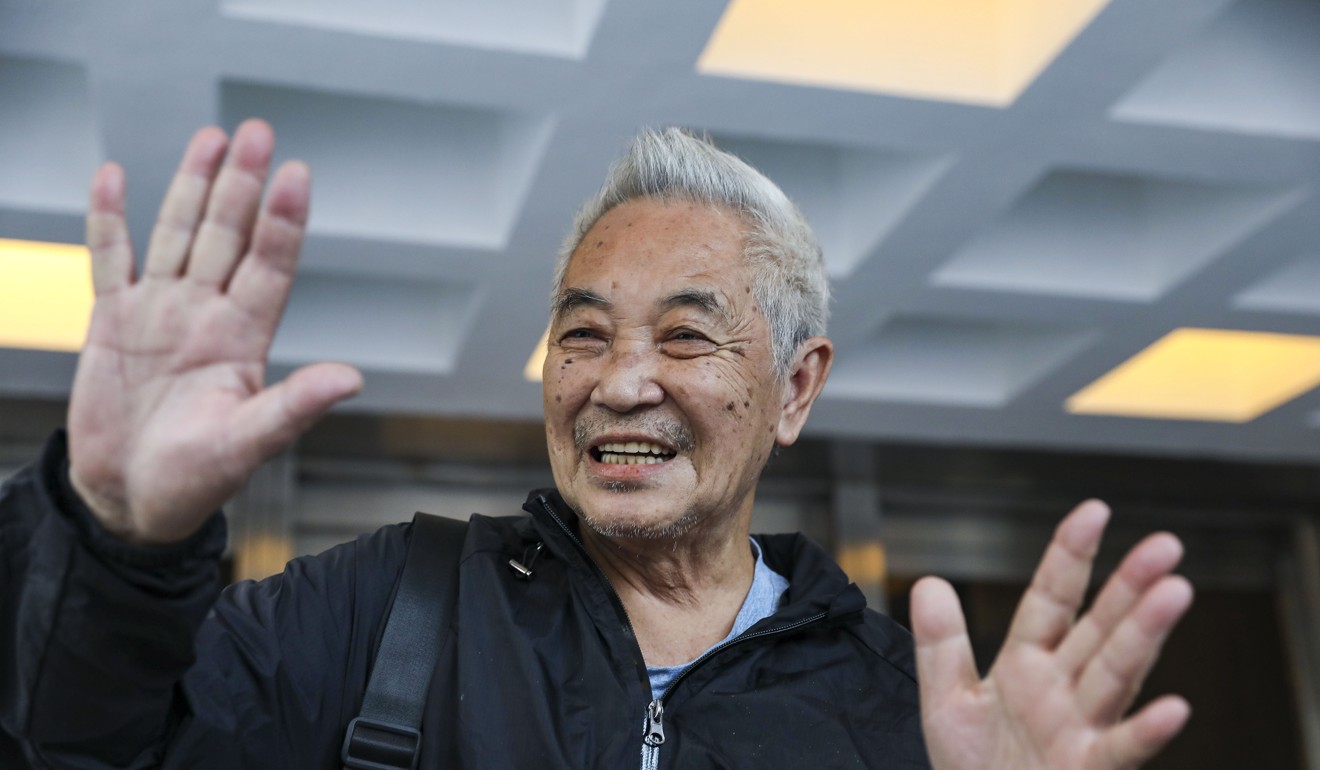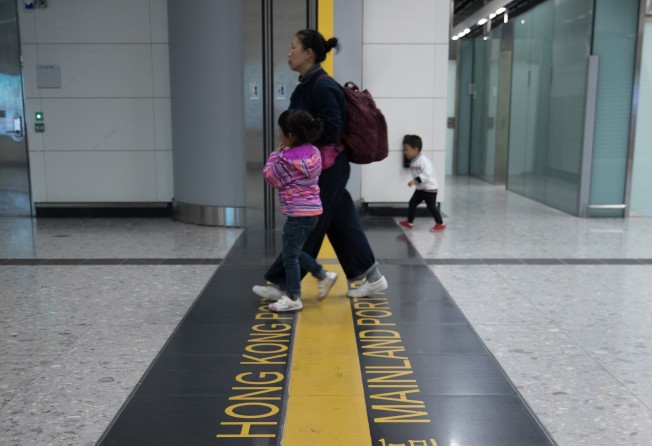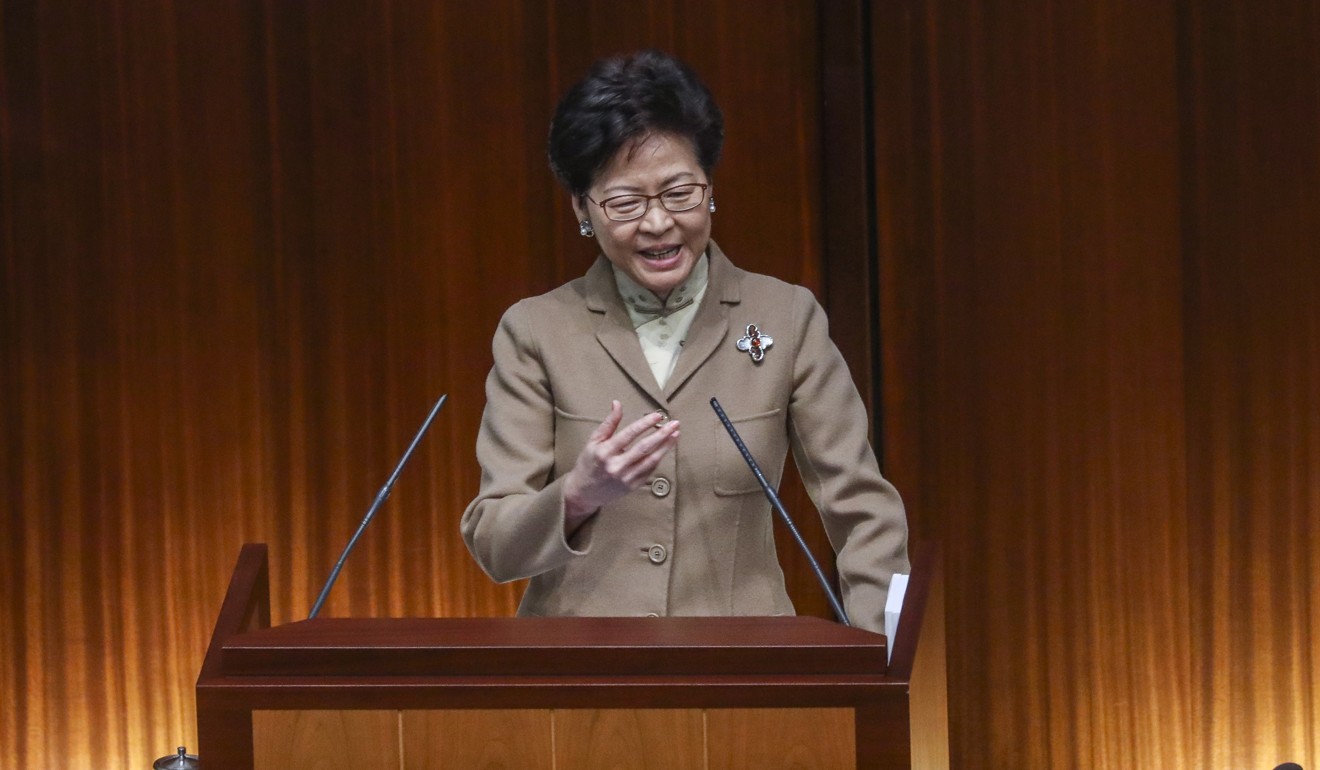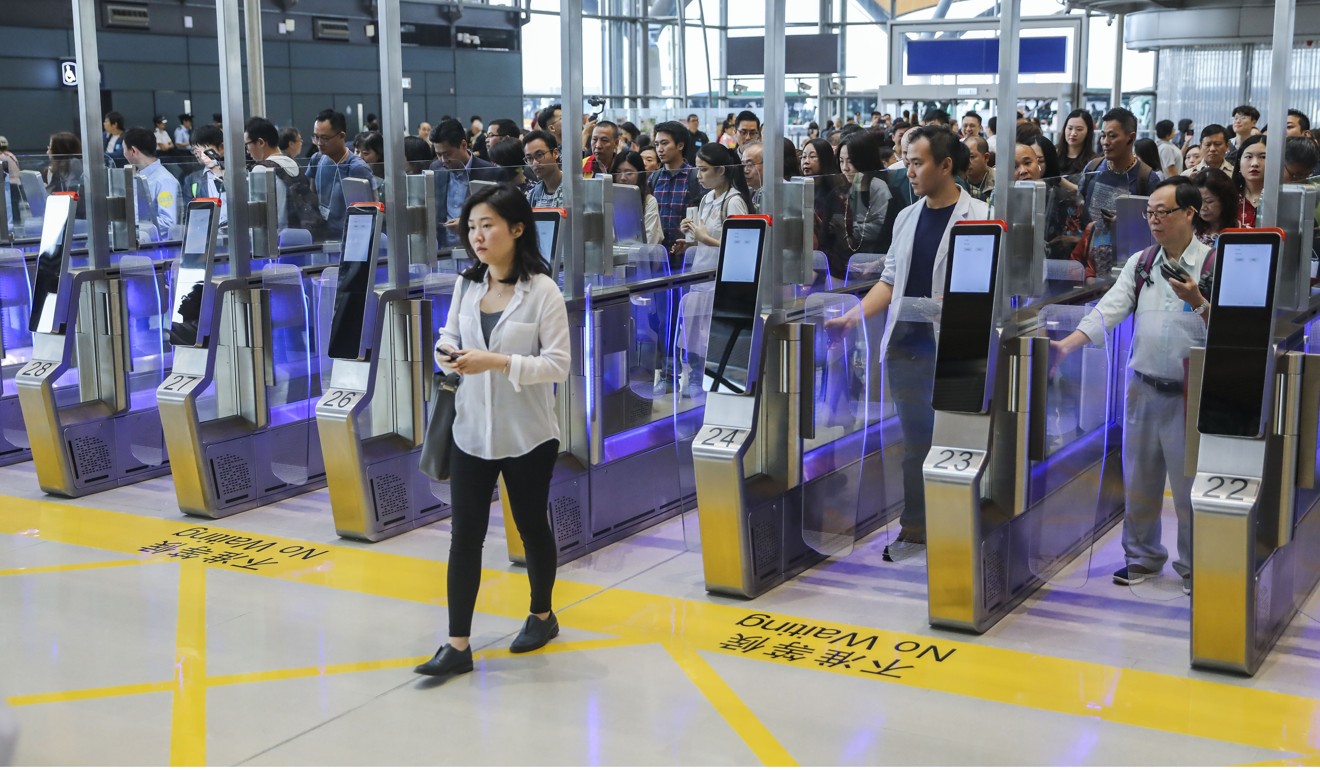
Hong Kong leader Carrie Lam slams claims that migrants have drained health care resources as legal challenge is filed against ‘one-way’ settlement scheme for mainland Chinese residents
- Former civil servant Kwok Cheuk-kin lodges application for judicial review over cross-border family reunion policy, in place since 1982
- Chief executive says it would be ‘very xenophobic’ to separate the amount of resources and social welfare new migrants receive

Hong Kong’s leader Carrie Lam Cheng Yuet-ngor on Tuesday dismissed claims that new migrants drained public hospital resources as a former civil servant filed a legal challenge against a policy that allows up to 150 mainland Chinese residents to settle in the city every day.
The chief executive defended the one-way permit scheme as Kwok Cheuk-kin lodged an application for a judicial review over the cross-border family reunion policy, in place since 1982.
According to the court document, Kwok, known for challenging the government through judicial review, has based his argument on Article 22 of the Basic Law – the city’s mini-constitution – which states that mainland residents “must apply for approval” before entering Hong Kong.

The article says “the number of persons who enter [Hong Kong] for the purpose of settlement shall be determined by the competent authorities of the central people’s government after consulting the [Hong Kong] government”.
Kwok argued that the Hong Kong government had failed to implement the provision, thereby causing the population to expand too rapidly. He called for the scheme’s quota to be cut back, so sufficient resources would be dedicated to locals.
“The government cannot even fulfil the local needs for medical and education services,” he said. “Yet it went to great length to say it would allow them to come?”
Ronny Tong Ka-wah, a member of the Executive Council, Lam’s cabinet, said Kwok’s bid would likely be shot down as the National People’s Congress Standing Committee, the country’s top legislative body, had interpreted Article 22 in 1999.
“I believe it will be hard for the court to accept the application,” Tong said.
The standing committee ruled that children born on the mainland with one or more Hong Kong parents were only allowed to relocate to the city after being issued a one-way permit.
Kwok’s sentiment was shared by some public sector health care professionals, who last month vented their dissatisfaction over manpower shortages and workload during the winter flu season.

Lam, however, said the claim that new migrants overloaded the health system was false, as those arriving with a one-way permit were usually younger, while normally those who needed medical services were older.
According to by-census data from 2016, the median age of mainland migrants who had lived in the city for less than seven years was 33.9 – lower than the Hong Kong population’s 44.3 years.
Lam said it was unreasonable to pinpoint social resources use.
“If we separate and say how much medical resources and social welfare [new migrants] have used, this is a very xenophobic view,” Lam said. “People should welcome these relatives of Hong Kong residents.”
According to welfare minister Law Chi-kwong, about 960,000 mainland residents have relocated to Hong Kong over the past two decades.
Dr Alfred Wong Yam-hong, a cardiologist working at a public hospital, disagreed with Lam.
“Imagine a lift that is already overloaded, you shouldn’t let more people in, it is not an issue of nationality,” Wong said, adding the figures did not reflect what frontline hospital workers faced.
“Any nurse or doctor serving in a public hospital will tell you that it has become common for Hong Kong identity card holders who normally live on the mainland to get treated in Hong Kong.”

Neo Democrats lawmaker Gary Fan Kwok-wai also said Lam had sidestepped the issue that 23 per cent of those who arrived in Hong Kong under the scheme in 2016 were aged 45 or above.
“These people will grow old just like Hong Kong people, and they will need to make use of the public health care system,” Fan said.
Meanwhile, Census and Statistics Department statistics released on Tuesday showed 42,300 mainlanders settled in Hong Kong last year via the one-way permit scheme, a 10 per cent fall from 47,000 in 2017. In 2016, 57,400 mainlanders moved to Hong Kong via the scheme.
Localist activist Roy Tam Hoi-pong, of the Neo Democrats, remained uneasy despite the drop.
“The figures show that almost two-thirds of our population increase was due to new migrants. It is unsustainable for a compact city like Hong Kong,” he said.
Sze Lai-shan, of the Society for Community Organisation, said: “Some mainlanders may not find Hong Kong appealing with the improvement of living quality on the mainland.”
At the end of 2018, Hong Kong had a population of about 7.48 million, a year-on-year increase of 0.9 per cent.